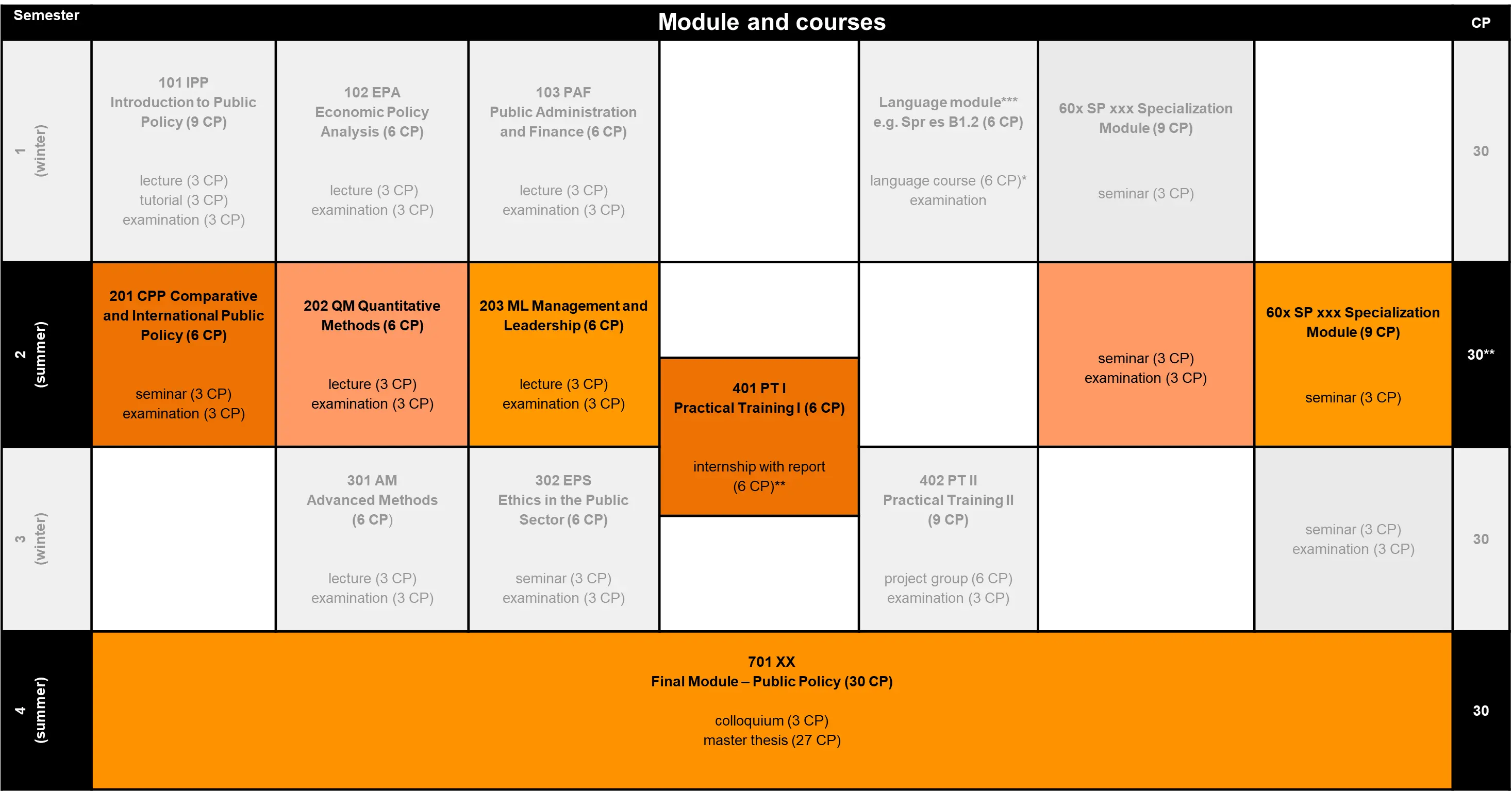Academic Schedule (Summer semester 2025)

This page presents an overview of the courses offered within the Master of Public Policy Program in the current/upcoming semester. To achieve your MPP degree, you'll have to complete mandatory courses, elective courses, language courses and participate in a project group (winter semesters only).
Please note that this information is subject to change!
Mandatory courses
All first-year students need to register for and participate in the following courses:
Comparative and International Public Policy
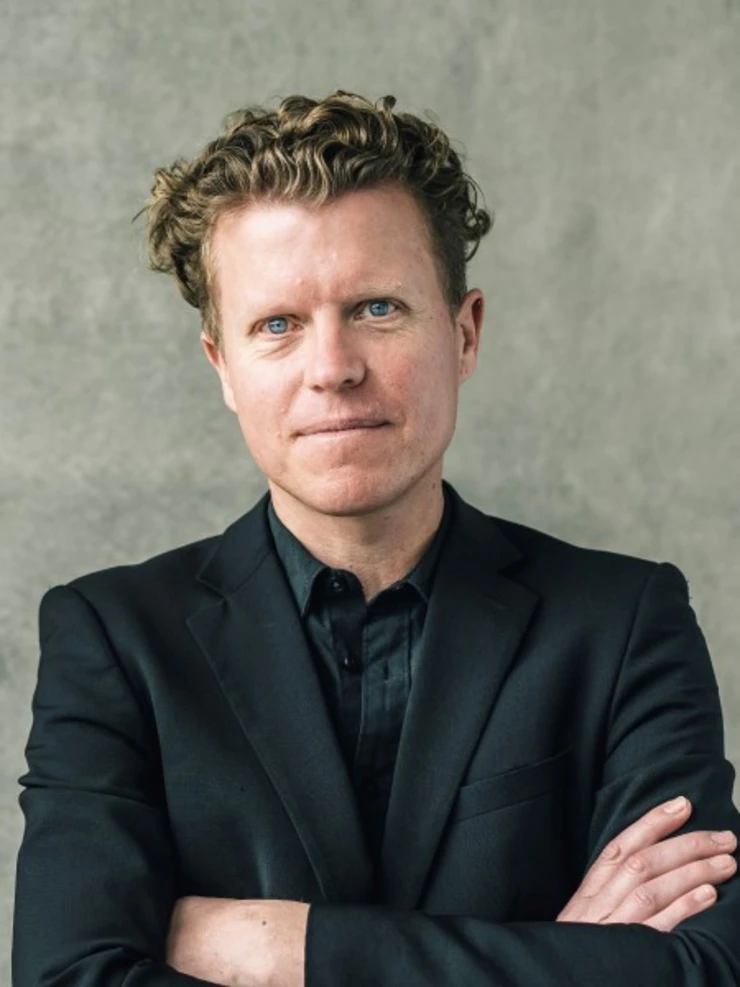
Lecturer: Prof. Dr. Andreas Goldthau
Time (location): Thursdays, 10-12h (C07-LG 2 | 207)
Tutorial:
- Thu, April 17, 16-18h (C19.00.02)
- Fri, April 25, 10-12h (online)
- Fri, May 09, 10-12h (C07-LG 2 | 123)
- Wed, May 14, 12-14h (C19.00.02)
Module: M Pub 2020 201CPP#01
Moodle: You will be enrolled by us
Course description: The central aim of this course is to give students the opportunity to examine and compare concrete public policies across a variety of national and sub-national contexts. Complementing “Introduction to Public Policy” and the theories and approaches presented there, the course will provide a survey across diverse policy areas, including economics, public health, migration, and foreign policy, to name just a few areas. The course will also introduce appropriate methods for comparative policy analysis. Overall, the course aims at teaching an advanced understanding on how to compare public policy across countries as well as key policy issues in various societies with a special focus on contemporary policy concerns.
Further details about this course can be found here.
Quantitative Methods for Public Policy
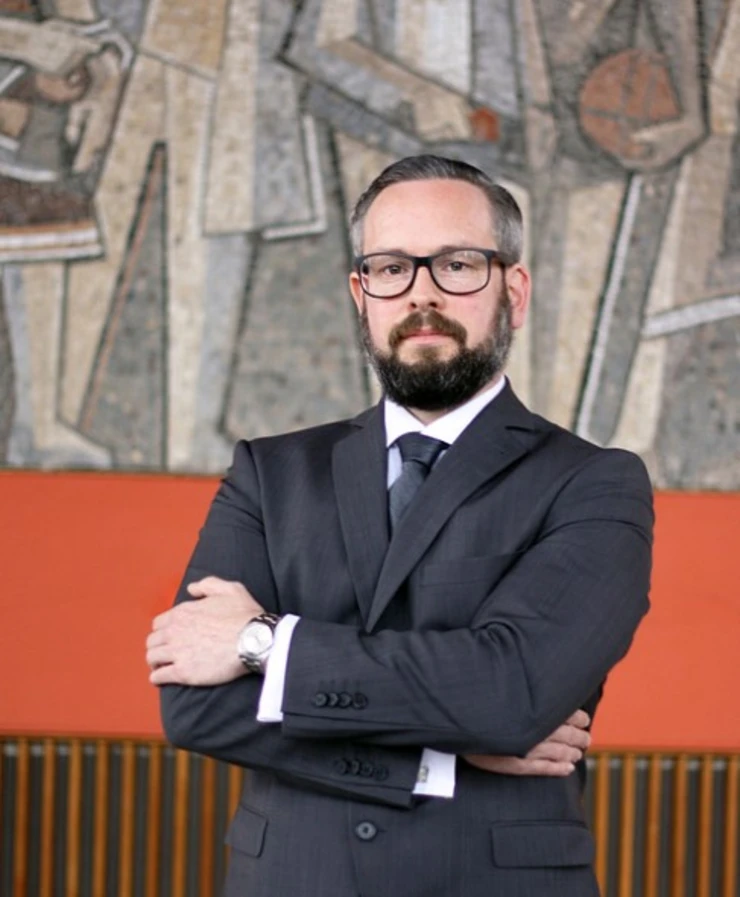
Lecturer: Prof. Dr. Guido Mehlkop
Time (location): Mondays, 14-16h (C01-AMG | 0007)
Tutorial: Thursday, 8-10h (C01-AMG | 0007)
Module: M Pub 2020 202QM#01
Moodle: You will be enrolled by us
Course description: In the modern social sciences, theoretical propositions must be tested with real world empirical data. Progress is enhanced by eliminating hypotheses which do not pass empirical testing. Therefore, scientific work is based on the interplay between theory and sound empirical testing. This introduction to quantitative methodology provides a course in statistics: sampling distribution; reducing complexity (means and deviations); describing data sets graphically; estimating population means; z-transformation and T-tests; associations between nominal and ordinal scaled data (cross-tabs, chi-square); associations between metric data (coefficient of correlation, OLS regressions).
Further details about this course can be found here.
Management and Leadership

Lecturer: Prof. Dr. Heike Grimm
Time (location):
- Tuesdays, 12-14h (C07-LG 2 | 131), plus one of the two workshops:
- Communication& Leadership: Fri, May 23, 12-18h and Sat, May 24, 9-15h (C18-LG 4 | 03.05)
- Ledership in (I)NGOs: Thu, June 5, 14-19h and Fri, June 6, 10-15h (KIZ | R 0.10)
Module: M Pub 2020 203ML#01
Moodle: You will be enrolled by us
Course description: This course seeks to familiarize students with the theories and practical concepts of leadership and political advocacy. It is designed to capacitate students to work successfully in management positions, to direct and coordinate human resources, and to advocate issues successfully in a political context. Leadership is a process of influencing and supporting others to work enthusiastically towards achieving objectives. A leader is the catalyst that transforms potential into reality. Good leaders develop through a continuous process of self-study, education, training, and experience. In this context we will discuss major factors in and principles of leadership and discuss implications for strategic management and political leadership. In the context of political advocacy, we aim to better understand the complexity of leadership in public and political environments. Political advocacy can include many activities that a person undertakes such as media campaigns, lobbying, or public speaking which need to be aligned to ensure optimal outcomes. The assessment of specific examples will allow us to draw lessons on how to best align those activities to optimize political advocacy. At the end of the course, participants should be able to apply a variety of leadership styles; identify leadership mistakes and be able to avoid them; distinguish between private, public, and non-profit leadership styles; transfer good practice examples of public and political leadership into practice. Furthermore, the students will have the opportunity to learn more about their own leadership skills and styles. A professional consultant will join us to improve our leadership skills.
Further details about this course can be found here.
All second-year students need to register for and participate in the following courses:
Master Thesis
Students complete the MPP program by writing a Master thesis. They research and analyze a specific problem in public policy in depth. Aided by a colloquium and assisted by a supervisor, students conduct a study with a distinct practical orientation on a particular policy issue.
The usual length of the thesis is 25.000 words. The time frame for completion is five months.
Research Colloquium
Students writing their master thesis need to participate in one of the colloquia, usually the one offered by their supervisor. Should your supervisor not offer a colloquium, please visit the one of the second reader, or make arrangements with other faculty of Brandt School, or the wider university. The MPP Program Coordinator offers assistance in finding the fitting colloquium. Make sure to regularly consult with your supervisor, also during office hours.
You need to register for a research colloquium in ELVIS during course registration period. It is not necessary to also register the Master thesis itself on ELVIS.
| Instructor | Date | Time | Location | Contact | ||
| Andreas Goldthau | Wednesdays | 10-12h | C19.03.39 | andreas.goldthau@uni-erfurt.de | ||
| Heike Grimm | Mondays | 14-16h | C19.03.39 | heike.grimm@uni-erfurt.de | ||
| Achim Kemmerling | Mondays | 14-16h | C03-LG 1/118 | achim.kemmerling@uni-erfurt.de | ||
| Hasnain Bokhari | Tuesday | 10-12h | C19.01.43 | hasnain.bokhari@uni-erfurt.de |
Practical Training
Internship
The Public Policy degree program (MPP) includes a mandatory internship as one requirement for completing the degree.
- Primary purposes of the internship are the opportunity to apply the knowledge and skills from the classroom in a work setting, to give students a practical perspective on policy analysis and public management and to help them compare their abilities and interests with requirements in particular fields of public policy.
- Internships may be conducted in government agencies, international organizations, NGOs, or other non-profit or for-profit organizations. The job description must show that the work assigned to the intern will be relevant to public policy analysis and/or management.
- Internships must comprise at least 180 hours, 5 of which may be used for writing the internship report. Typically, the internship will be conducted during the summer break between the second and the third semester (mid-July to mid-October). The hosting agency must name an individual person, responsible for supervising the intern and for communicating with the Brandt School if needed. In order to receive credits for their internship, students have to submit an internship report of 4-5 pages via moodle, no later than 30 days after the last day of the internship.
For further information, please consult the internship regulations on Moodle and contact the Brandt School’s internship coordinator Florian Heintze (florian.heintze@uni-erfurt.de).
Language Training
Your study rules (“Studien- und Prüfungsordnung”) require that, during your studies, you collect a total of 6 credits and a grade in the language module.
- This means that you can take one course with 6 credits. For your information, two courses with 3 credits each cannot be recognized for the mandatory language module, since they don't prepare you fully for a language level examination.
- Either way, you will have to do one module exam, providing you with a grade. You may take more courses in the language module, if you like.
Students with no or little knowledge of German take German classes up until level A2.1 (CEFR)
Students who are not yet proficient in German (level “A2”) must take the German language module. Therefore, the Brandt School offers special German beginners' classes for international MPP students.
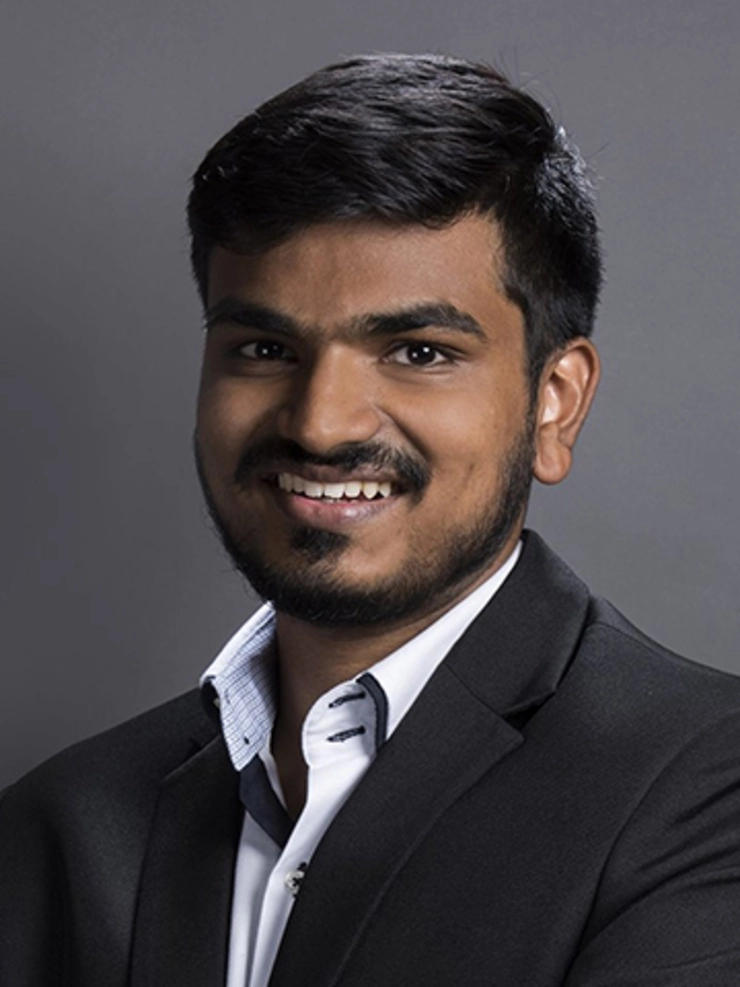
Lecturer: Mangesh Padalikar
Time (location): Mondays, Wednesday & Fridays 8-10h (C03-LG 1 | 219)
Module: ZS ENi 2020 SprdeA2.1#02
Moodle: You will be enrolled by us
Course description: As per the study and exam regulations (M Pub 2020, section 5, paragraph 3), Master of Public Policy students need to complete the language module in German, reaching at least proficiency level “A2” as one requirement for graduation. These courses, offered specifically for Brandt School students, are the major offer to get you there. After “A1” in winter semesters, “A2” is offered in summer semesters. Course content: Grammar, vocabulary, conversation for advanced beginners. Requires prior completion of German A1 level.
Further details about this course can be found here.
Students with A2 or higher-level knowledge of German
… continue improving their German language skills (if applicable)
… or opt for another foreign language on offer (e.g. Arabic, Chinese, English, French, Russian, Spanish), offered by the University’s Language Center (Sprachenzentrum). The list of offers is on their website or on E.L.V.I.S. (Summer Semester 25 > (ZS) > ZS Acquisition of a langue level 2020).
Important notes
- Please check for schedule clashes with (mandatory) MPP courses, before signing up for a particular class (see sign-up procedure)!
- Some classes require a placement test beforehand; for the test dates see here.
In addition to courses, the Language Center also offers proficiency exams (Niveaustufenprüfungen) in several languages that you can take (regardless of whether you have taken a course or not) at the end of the lecture period, providing you with a certificate of your level. For current information, please check the Language Center’s websites for the respective languages.
Elective courses (Specializations)
Currently, Brandt School is offering four specializations, based on the research areas of our core academic staff.
- Out of the four specializations offered, you will need to have completed two at the end of your study period
- To complete a specialization, you need to visit two seminars and do one module exam in one of the courses visited
- You may do more seminars, but mind the workload
- While we cannot guarantee that a course will be offered again in future, we can say whether it was offered before. Courses that have been taught in the previous summer semester are marked with one asterisk (*). Courses that have been taught in an earlier semester are marked with two asterisks (**). New courses are marked with three asterisks (***).
Non-Profit Management and Entrepreneurship
Public Health**

Lecturer: Prof. Dr. Heike Grimm
Time (Location):
- Mandatory First Session Tue, April 8, from 16-20h (C03-LG 1 | 110)
- Tuesdays, 16-18h (C03-LG 1 | 110)
- Fri, May 9, 12-20h (C03-LG 1 | 104; exact times t.b.a.)
- Sat, May 10 from 10-16h (C03-LG 1 | 104; exact times t.b.a.)
Module: M Pub 2020 601SPNPM#02 / M Pub 2020 602 SP GPP#02
Moodle: Please use Brandt School's enrolment key
Course description: This interdisciplinary course offers an in-depth exploration of contemporary public health issues through the lens of policymaking, leadership, and global governance. Taught by Prof. Dr. Heike Grimm (Willy Brandt School of Public Policy, University of Erfurt) and co-taught by Dr. Harshita Kaul (CECAD Research Centre, Cologne), and supported by a team of experts, the course equips students with both theoretical frameworks and practical perspectives on public health policy and management.
We begin by tracing the history, evolution, and key definitions of public health, distinguishing it from medicine and epidemiology, and exploring its intersections with social and behavioral sciences. The course then addresses core concepts such as the social determinants of health, global disease burden, and the role of public health governance at national and international levels. Special attention is given to Health in All Policies (HiAP) and SDG3 (Good Health and Wellbeing) as guiding frameworks for modern public health initiatives.
A critical component of the course is the analysis of leadership and governance during health crises, with a focus on biopolitics and public health entrepreneurship. Drawing on Foucault’s concept of biopolitics, we examine how epidemics like COVID-19 have transformed power structures and policymaking in democratic societies. We further explore comparative public health education and leadership models to assess their preparedness for future challenges. Students will engage in case studies on pandemic responses, including the COVID-19 pandemic and the Ebola outbreak in West Africa, assessing policy failures and best practices from a Global South perspective.
Key Themes:
- History and evolution of public health
- Global health governance and policy frameworks
- Leadership and entrepreneurship in public health
- Crisis management and biopolitics in pandemics
- Sustainability of ecosystems in context of public health
- Case studies on COVID-19 and Ebola responses; Obesity; Tobacco Control
- Policy strategies for epidemic preparedness and health equity
The course supported by Dr. Harshita Kaul, Dr. Lamin O´Ceesay, Dr. Juliane Corredor Jimenez, and Ana Andrun investigate various public health issues in context of policymaking.
Please note that participating in the introductory session on Tuesday, April 8, from 4-8pm is foundational and thus mandatory for all students intending to visit this course!
Further details about this course can be found here.
Performance Management, Budgeting, and Accountability in Nonprofit Organizations

Lecturer: Prof. Dr. Heike Grimm
Time (location)
- Thu, April 10, 14-16h (C03-LG 1 | 104)
- Thu, April 24, 14-16h (C03-LG 1 | 104)
- Thu, May 8, 14-16h (C03-LG 1 | 104)
- Thu, May 22, 14-16h (C03-LG 1 | 104)
- Thu, June 12, 14-20h (C03-LG 1 | 104)
- Fr, June 13, 10-16h (C03-LG 1 | 102)
- Thu, June 19, 14-18h (C03-LG 1 | 104)
- Fr, June 20, 14-18h (C03-LG 1 | 102)
Module: M Pub 2020 601SPNPM#02
Moodle: Please use Brandt School's enrolment key
Course description:
This course, co-taught by Achim von Heynitz and Prof. Dr. Heike Grimm, focuses on the critical aspects of performance management, budgeting, and accountability within nonprofit organizations (NPOs). Key themes will include the differences between nonprofit and other sector organizations, the role of NPOs in public service delivery, and the challenges of strategic decision-making in mission-driven contexts. The course draws on foundational theories, including Mazzucato’s Mission Economy and Moore’s Creating Public Value, to explore how vision, mission, and values guide organizational strategy. Students will examine real-world case studies, applying tools such as SWOT and PESTEL analyses to strategic decision-making, and will delve into performance measurement and results-based budgeting as essential mechanisms for improving nonprofit outcomes.
Throughout the course, students will be introduced to critical concepts such as results-based management (RBM), the Kennedy School’s “Strategic Triangle,” and the shift from compliance-based to performance-based budgeting (PBB). They will learn how to align strategic goals with budgeting priorities, assess risks, and incorporate performance indicators into decision-making processes. The course includes an intensive two-day workshop and culminates in case study presentations that apply lessons learned in class adding a focus on transferring nonprofit practices to the Global South (or vice versa). The final assignments will focus on applying RBM in nonprofit settings to enhance accountability and performance.
Further details about this course can be found here.
International and Global Public Policy
The Politics of Global Energy Transition*

Lecturer: Prof. Dr. Andreas Goldthau
Time (location): Thursday, 12-14h (C07-LG 2 | 207)
Module: M Pub 2020 602SPGPP#02
Moodle: Please use Brandt School's enrolment key
Course description: Achieving the Paris climate target of “well below 2 degrees” of global warming, the global energy system needs to decarbonize. This means switching from a fossil fuel-based system to one that relies on renewables and low carbon technologies. This seminar will assess key aspects of the energy transition, including the politics of climate change mitigation; questions related to distributional justice; the political economy of national decarbonization; and the opportunities of and barriers to systemic change. It will discuss pertinent aspects including financial flows, the economics of going low carbon, and the role of technology and policy.
Further details about this course can be found here.
Autocratization in the Global South*

Lecturer: Prof. Dr. Mariana Llanos
Time (location): Mondays, 12-14h (C03-LG 1 | 318)
Module: M Pub 2020 602SPGPP#02
Moodle: Please use the University's enrolment key
Course Description: t.b.a.
Further details about this course can be found here.
Artificial Intelligence and Public Policy**
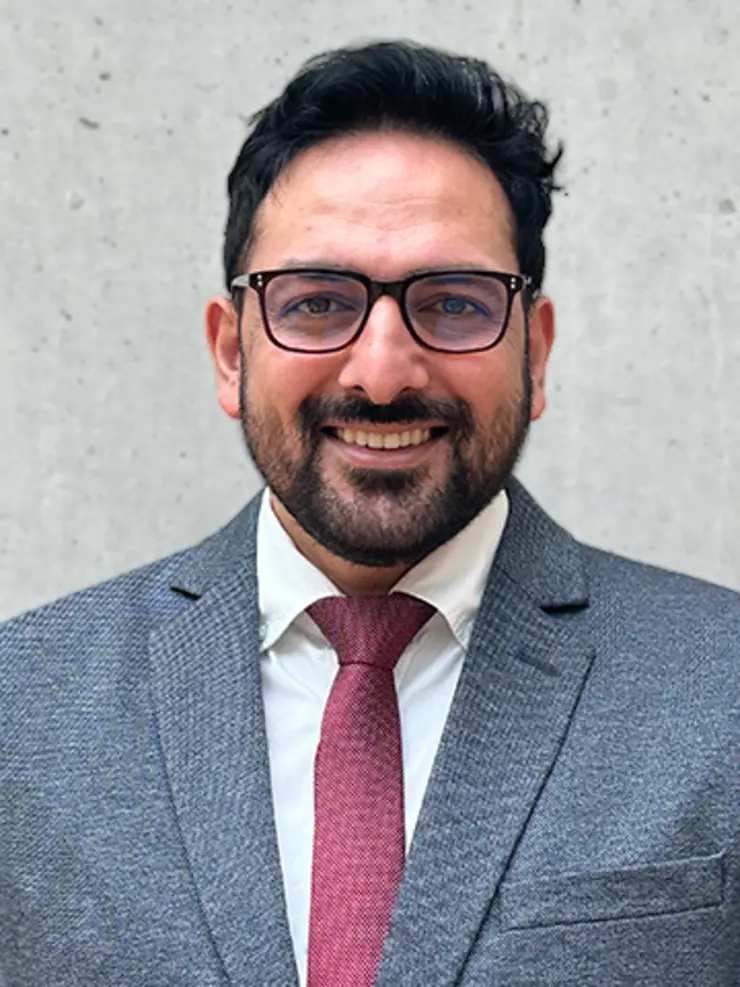
Lecturer: Dr. Hasnain Bokhari
Time (Location):
- Mon, April 14, 12-14h (C19.00.02)
- Mon, April 28, 10-14h (C19.03.39)
- Mon, May 05, 10-14h (C19.03.39)
- Mon, May 12, 10-14h (C19.03.39)
- Mon, May 19, 10-14h (C19.03.39)
- Mon, May 26, 10-14h (C19.03.39)
- Mon, June 02, 10-14h (C19.03.39)
- Mon, June 16, 10-14h (C19.03.39)
Module: M Pub 2020 602SPGPP#02 and M Pub 2020 601 SP NPM#02
Moodle: Please use Brandt School's enrolment key
Course Description: Artificial Intelligence (AI) is rapidly transforming and impacting various sectors, ranging from health to the economy, and from education to public administration. AI is no longer solely a technological phenomenon confined to technologists; it is evolving into a catalyst for reshaping policies that affect us all. However, are we adequately equipped with the knowledge and skills required to navigate the AI-driven landscape effectively? With the surge in generative AI, several working groups on AI have been established at national and international levels. These groups convene in multilateral fora to discuss policy options, necessitating a nuanced understanding of AI's intricate policy implications. It is therefore imperative to continuously question how we can ensure that policies driven by AI are not only innovative but also just and inclusive. How can AI assist us in constructing better policies that cater to the unique needs of diverse communities? This course aims to delve into the intersection of AI and public policy by addressing the intricate threads that interconnect these two domains. In this course, participants will engage interactively and collaboratively, exploring topics related to domains such as public administration, governance and democracy through the lens of AI and its potential ethical considerations. This course will introduce fundamental concepts of AI in highly interactive sessions, including podcasts, documentaries, and movie sessions. The course will also feature guest lecturers from the field of AI.
Further details about this course can be found here.
Public Health***

Lecturer: Prof. Dr. Heike Grimm
Time (Location):
- Mandatory First Session Tue, April 8, from 16-20h (C03-LG 1 | 110)
- Tuesdays, 16-18h (C03-LG 1 | 110)
- Fri, May 9, 12-20h (C03-LG 1 | 104; exact times t.b.a.)
- Sat, May 10 from 10-16h (C03-LG 1 | 104; exact times t.b.a.)
Module: M Pub 2020 601SPNPM#02 / M Pub 2020 602 SP GPP#02
Moodle: Please use Brandt School's enrolment key
Course description: This interdisciplinary course offers an in-depth exploration of contemporary public health issues through the lens of policymaking, leadership, and global governance. Taught by Prof. Dr. Heike Grimm (Willy Brandt School of Public Policy, University of Erfurt) and co-taught by Dr. Harshita Kaul (CECAD Research Centre, Cologne), and supported by a team of experts, the course equips students with both theoretical frameworks and practical perspectives on public health policy and management.
We begin by tracing the history, evolution, and key definitions of public health, distinguishing it from medicine and epidemiology, and exploring its intersections with social and behavioral sciences. The course then addresses core concepts such as the social determinants of health, global disease burden, and the role of public health governance at national and international levels. Special attention is given to Health in All Policies (HiAP) and SDG3 (Good Health and Wellbeing) as guiding frameworks for modern public health initiatives.
A critical component of the course is the analysis of leadership and governance during health crises, with a focus on biopolitics and public health entrepreneurship. Drawing on Foucault’s concept of biopolitics, we examine how epidemics like COVID-19 have transformed power structures and policymaking in democratic societies. We further explore comparative public health education and leadership models to assess their preparedness for future challenges. Students will engage in case studies on pandemic responses, including the COVID-19 pandemic and the Ebola outbreak in West Africa, assessing policy failures and best practices from a Global South perspective.
Key Themes:
- History and evolution of public health
- Global health governance and policy frameworks
- Leadership and entrepreneurship in public health
- Crisis management and biopolitics in pandemics
- Sustainability of ecosystems in context of public health
- Case studies on COVID-19 and Ebola responses; Obesity; Tobacco Control
- Policy strategies for epidemic preparedness and health equity
The course supported by Dr. Harshita Kaul, Dr. Lamin O´Ceesay, Dr. Juliane Corredor Jimenez, and Ana Andrun investigate various public health issues in context of policymaking.
Please note that participating in the introductory session on Tuesday, April 8, from 4-8pm is foundational and thus mandatory for all students intending to visit this course!
Further details about this course can be found here.
History and International Relations*
Lecturer: Zeynep Gülşah Çapan
Time (location): Mondays, 16-18h (C03-LG 1 | 318)
Module: M Pub 2020 602 SP GPP#02
Moodle: Please use the University's enrolment key
Course description: The aim of the course is to introduce students to discussions about the history and historiography of international relations. The story of international relations is predominantly told as a European story that moves from the ‘Age of Revolutions’ to 1815 Concert of Europe and into the two World Wars and the Cold War. The aim of the course is to discuss the possibilities of different stories of the international that does not have Europe at its centre and focuses on the connections and internationals that have constituted the international.
Further details about this course can be found here.
Important note on participation: The faculty is opening this course from the "M.A. Staatswissenschaften” (Economics, Law and Social Sciences) program for up to 5 MPP students. In order to participate, please email Dr. Robert Fritzsch (robert.fritzsch@uni-erfurt.de) no later than April 6, 2025. Should there be more than 5 requests, MPP-participants will be randomly selected.
Development and Socio-Economic Policies
Policies for Fighting Poverty and Inequality*

Lecturer: Prof. Dr. Achim Kemmerling
Time (location): Tuesdays, 14-16h (C03-LG 1 | 228)
Module: M Pub 2020 603 SP SEP#02
Moodle: Please use Brandt School's enrolment key
Course description: In this course, we will look at policies designed to fight poverty and inequality and their chances and challenges in developing countries. We start with a comparative overview over different types of ‘models’ and welfare regimes across the world. Then we focus on challenges of welfare state finances such as tax competition and revenue generation. Once we know the revenue side, we look at types of expenditures such as social insurance, social benefits and recent innovations in this area (e.g. unconditional cash transfer programs). Next, we will look at some main areas of social policy (such as health, employment and education). Finally, we look at some related areas such as microfinance. In all sessions, we will not only look at successful and unsuccessful cases, but also at specific challenges in lower- and middle-income countries such as corruption or patronage.
Further details about this course can be found here.
Economic Growth, the External Sector, and Country Risks in Developing Countries*

Lecturer: Prof. Dr. Dominik Maltritz
Time (location): Thursdays, 12-14h (C03-LG 1 | 318)
Module: M Pub 2020 603 SP SEP#02
Moodle: Please use the University's enrolment key
Course description: This course is about the reasons for growth and economic development in developing and newly industrializing countries, in particular about the influence of and the relation to the external sector of the national economy. We will look at the real economic aspect (exports, imports, etc.), but with a stronger focus on the monetary aspect, i.e. the inward (and outward) flow of capital, such as foreign direct investment. Country risks and the governance of states play an important role in this context. The latter also has a direct influence on economic development and may create feedback effects.
Further details about this course can be found here.
Fields Experiments in Public Policy*
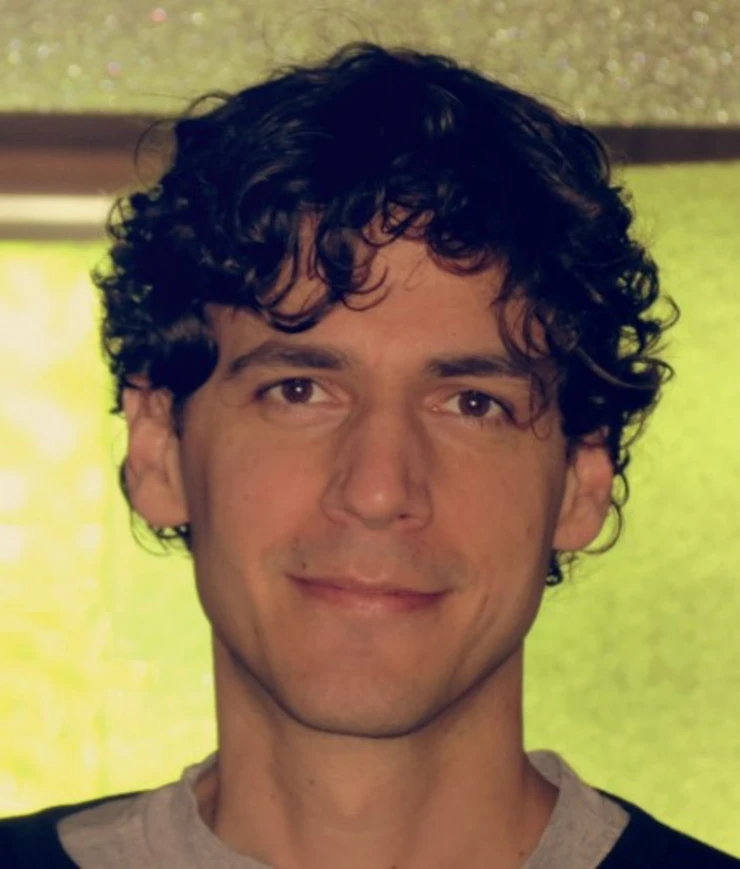
Lecturer: Prof. Dr. Oliver Himmler
Time (location): Tuesdays, 14-16h (C03-LG 1 | 326)
Module: M Pub 2020 603 SP SEP#02
Moodle: Please use the University's enrolment key
Course description: This course introduces students to field experiments as a tool for evaluating public policy. The experimental approach is gaining more and more importance in informing public policy, and having a grasp of the key concepts and methods will therefore become an increasingly valuable skill for students. The course will first cover the method of experimental policy evaluation, i.e. how to design and conduct a randomized controlled trial, and how to interpret the results. We will then discuss experimental approaches to recent issues in economic policy and public economics. Special attention will be given to policy interventions where the experimental design incorporates insights from the behavioral sciences. In the course, students will be asked to come up with an experimental design that can be helpful in better understanding a specific policy issue.
Further details about this course can be found here.
Macroeconomics II*

Lecturer: Prof. Dr. Sebastian Rüth
Time (location): Mondays, 16-18h (C03-LG 1 | 326)
Module: M Pub 2020 603 SP SEP#02
Moodle: Please use the University's enrolment key
Course description: The objective of this course is to introduce students to empirical research in macroeconomics. The focus of the course is on the dynamic and quantitative analysis of macroeconomic and financial shocks (e.g., disruptions in crude oil markets, global food commodity markets, the financial system, global supply chains) and their propagation to the broader economy. From a methodological point of view, students will learn how to implement simple macroeconometric techniques such as “local projections” in state-of-the-art statistical software and how to use these tools to answer policy relevant questions. The course thus provides a solid foundation for conducting independent research with a quantitative focus and for understanding recent contributions and discussions in the field of empirical macroeconomics.
Further details about this course can be found here.
Conflict Studies and Management
Arab-Israeli Relations: History, Conflict, and Diplomacy***

Lecturer: Nagapushpa Devendra
Time (location): Wednesdays, 10-12h (C03-LG 1 | 323)
Module: M Pub 2020 604 SP CSM#02
Moodle: Please use the University's enrolment key
Course description: This course examines the origins, development, and contemporary dimensions of the Arab-Israeli conflict. It covers the historical roots of the conflict, the key players, wars, peace efforts, and the broader geopolitical and international context. Special attention will be given to the roles of regional actors, superpowers, and international organizations. The course will also explore the social, economic, and ideological dimensions that shape this long-standing dispute. Course Objectives: By the end of the course, students will: 1. Understand the historical foundations of the Arab-Israeli conflict. 2. Analyze key conflicts, treaties, and diplomatic initiatives. 3. Assess the roles of major Arab states, Israel, and global powers. 4. Critically evaluate the peace processes and their successes and failures. 5. Develop the ability to present informed opinions on the conflict’s current status and future prospects.
Further details about this course can be found here.
Exploration of Trauma, Memory, and Resilience Through Documentary Filmmaking***
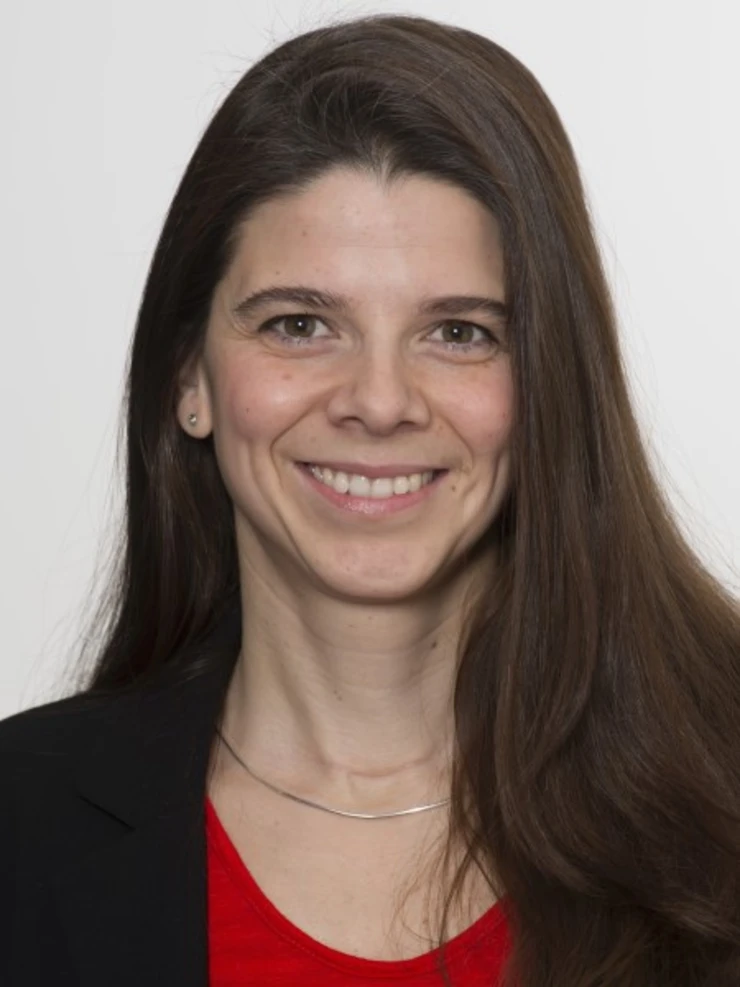
Lecturer: Prof. Dr. Solveig Richter
Time (location):
- Mon, March 31, from 10-12h (online: zoom link)
- Tue, May 13, from 11-15h (online)
- Thu, May 15, from 12-18h (C03-LG 1 | 104)
- Fri, May 16, from 10-18h (first C18-LG 4 | 03.08; afterwards excursion to Buchenwald)
- Tue, June 10, from 11-15h (online)
- Mon, June 16, from 11-14h (online)
- Sun, June 29 - Sat, July 5, Trip to Bosnia
- Wed, July 09, from 12-14h (online)
Module: M Pub 2020 604 SP CSM#02
Moodle: t.b.a.
Course description: Art has played a crucial role in post-conflict countries, as a tool to build memories, to express trauma, but also to enable encounters between victims and perpetrators, e.g. through music. Thus, art is often discussed in the academic literature as a key element of transitional or transformative justice. The seminar is an integral combination of academic reflection and hands-on work for the students. They will learn from an academic reflection on the chances and limitations of transformative justice through art and study specific art projects in post-conflict countries. All students are encouraged to bring in experiences and examples from their own countries or biographical background. On the practical side, this course will involve students in the exploration of trauma, memory, and resilience through the genre of documentary filmmaking, using the cases of Germany/Buchenwald (80 years of end of holocaust) and of Bosnia and Herzegovina/ Srebrenica (30 years of genocide) in both historical and contemporary relevance.
Further details about this course can be found here.
Cross-Specializations
Reading Evidence: How to Deal with Advanced Statistics in Contexts of Public Policymaking?**

Lecturer: Prof. Dr. Achim Kemmerling
Time (location): Mondays, 10-12h (C03-LG 1 | 135)
Module: M Pub 2020 601SPNPM#02 / M Pub 2020 602 SP GPP#02 / M Pub 2020 603 SP SEP#02 / M Pub 2020 604 SP CSM#02
Moodle: Please use Brandt School's enrolment key
Course description: This course enhances students ‘passive literacy’ in reading statistical evidence. Policymakers, analysts and academics trained in qualitative methods are confronted with an increasing amount of quantified information. Trends in evidence-based policymaking and rigorous impact analysis force them to acquire passive knowledge about advanced statistical methods. This is difficult because there is a lot of jargon and mathematical expressions in quantitative studies. This course helps students ‘reverse engineer’ this information. We look at specific studies using tools like different forms of regression analysis, machine learning and other advanced methods and see how we can digest this information in such a way that students with little background can still understand the main idea behind the statistical models, their strengths and weaknesses. We will mainly focus on passive skills, but occasionally also do some practical exercise using statistical software to fix ideas. Students are also expected to bring quantitative studies in their own fields and discuss them in class.
Further details about this course can be found here.
Data Analytics for Public Policy* (Independent Study Unit)

Lecturer: Dr. Hasnain Bokhari
Time (location): t.b.a.
Module: M Pub 2020 601 SP NPM#03 / M Pub 2020 602 SP GPP#03 / M Pub 2020 603 SP SEP#03 / M Pub 2020 604 SP CSM#03
Moodle: t.b.a.
Course description: In today's data-driven world, the effective analysis and interpretation of data play a crucial role in shaping public policy decisions. However, the field of data analytics can be quite challenging for social science and non-technical students. This course is specifically designed for students of the Brandt School with basic or no prior knowledge of computer programming. Python will serve as the primary language for this course, with introductory sessions designed to familiarize students with the basics of programming. Through guided exercises, students will develop proficiency in coding while gaining insights into algorithmic thinking and computational social science. The course will not have weekly in-class lectures; instead, it adopts a blended learning approach, offering a combination of self-paced learning modules via Moodle, interactive micro lectures, hands-on boot camps, and online meetings. Students will have access to various resources, including lecture materials, tutorials, coding exercises, and discussion forums via Moodle.
Further details about this course can be found here.
Advanced Data Analytics** (Independent Study Unit)

Lecturer: Dr. Hasnain Bokhari
Time (location): n.a.
Module: M Pub 2020 601 SP NPM#03 / M Pub 2020 602 SP GPP#03 / M Pub 2020 603 SP SEP#03 / M Pub 2020 604 SP CSM#03
Moodle: t.b.a.
Course description: With data at the core of decision-making today, analysis and interpretation are essential for influencing policy choices. This course is designed to equip public policy students with advanced data analytics skills using Python, preparing them for data-driven decision-making in the public sector. Students will explore a wide range of analytical methods utilizing Python libraries such as pandas, NumPy, and Matplotlib, applying these methods to real-world policy questions with publicly available datasets from global institutions like the IMF and EU. Additionally, the course will introduce the use of APIs (Application Programming Interfaces) to access and retrieve data from online databases. By connecting with APIs, students will learn to automate data extraction and integrate it into their analytical workflows. Students will also work on a simulated social science problem as a case study, applying Python programming and data analytics techniques to address real-world policy issues, reinforcing their Python skills throughout the process. This course is part of a broader project at the Brandt School titled Computational Social Science for Public Policy, led by Dr. Bokhari as its Principal Investigator. The course offers self-paced learning modules on Moodle.
Further details about this course can be found here.
Independent Study Unit*
Module: M Pub 2020 601 SP NPM#03 / M Pub 2020 602 SP GPP#03 / M Pub 2020 603 SP SEP#03 / M Pub 2020 604 SP CSM#03
Course description: Independent Study Units (ISUs) aim at deepening the students’ knowledge in a field of public policy, at an individual pace and are geared to pursuing individual interests. They may also serve as a means of allowing students to equalize differing levels of prior knowledge. If you are interested in registering for an Independent Study Unit, please discuss its contents and how it fits into your study plan with your academic mentor and contact MPP Program Coordinator Christian Tischmeyer for more details regarding registration and the study agreement. Subject to approval by the academic mentor, the Brandt School’s academic staff as well as faculty members or professors of the Faculty of Economics, Law and Social Sciences or other faculties of the University may be approached as supervisors for an ISU.
According to Section 5, paragraph 3 of the framework regulations of Master programs at the University of Erfurt (M-RPO 2019), an independent study agreement must be signed by both the student and the instructor at the beginning of the semester (within the course registration deadline) to receive credit points for an ISU. In this independent study agreement, the student pledges to work on an agreed topic and corresponding questions regularly and independently as well as to spend the necessary amount of time to reach the learning goals within a given time frame. To check the learning progress and to give the instructor an overview of the working status, specific assignments are given and regular meetings should be agreed upon.
Further details about this course can be found here.
Important Note
- It is not possible to substitute credits earned in one module for credits earned in another module.
- It is also not possible to re-take a module exam that you have already passed (with a grade of 4.0 or better). Check the Examination and Study Rules for more detailed and legally binding information regarding the structure of the MPP program. For easy reference, an unofficial English translation of this document is also available.
